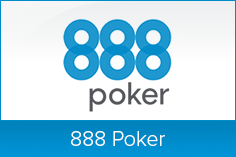What is Equity?

Poker is not only a game of competing minds and tactics, it's one of equity. In any given situation at the online poker table, your equity will be part of an equation that determines how you play a particular hand.
In broad terms, poker equity can refer to two elements of the game: a hand's equity versus a player's range and your equity in a game. Defining the latter is tricky because it's basically an assessment of how you stack up against your opponents. However, the former is not only easier to define, but essential.
Poker Equity is "the relative strength of your hands against the perceived range of hands your opponent could be holding."
Discover ways to make your poker play better, like:
- How to calculate your equity
- Using equity to your advantage
- Upsides of playing real cash poker
Working Out Your Equity

To establish your equity at the poker table it's important to do some post-game analysis, unless you're some kind of mathematical genius.
Once you've done this enough you'll begin to have an instinct of when you're in a good position to call or raise.
So, how do you work out your equity in any given situation and build up a bank of knowledge? Basically, the process of establishing poker equity can be broken down into three parts:
- Your opponent's likely shoving/calling range.
- The immediate pot odds on offer.
- Your hand's equity in relation to both previous points.
Let's consider this process in action with an example:
Example 1:
You (Hero) are sitting in the big blind with pocket eights. You watch a raise and a call from two players in late position (LP) and you're faced with the decision of whether to call or fold.
Using the above model, as well as some poker software, you can work out your best course of action in this spot.
00.50/01.00
6-max online cash game
Action:
-
Two folds
-
Villain 1 raises to $3
-
Villain 2 calls $3
-
SB folds
-
Hero calls $3
-
(Pot = $10)
The Action:
A short-stacked player raises from the cut-off with what you suspect is a fairly wide range of hands. Considering the first point on our three-step plan, we can say that this player is loose and that their range will look something like this:
22+, A2s+, K5s+, Q6s+, J7s+, T8s+, 98s, 87s, 76s, A2o+, K7o+, Q8o+, J9o+ & T9o.
Continuing the flow of action, the player on the button will certainly loosen up their calling range to reflect cut-off's wide opening range. Indeed, if their stack is also nearing the 10bb mark they will be likely to gamble in order to get back into the tournament. Because of this a typical range would be:
44+, A2s+, KTs+, QTs+, JTs, A5o+, KJo+ & QJo
Using this information and an equity calculator such as PokerStove, we can see that based on these rough ranges your equity in the hand is 39
Poker Sites we recommend you avoid if playing for Real Money
Combining Your Equity with Pot Odds
OK, so now you've estimated your equity is 39
Knowing this dynamic is important because now you can decide whether the pot odds and your equity make a call worthwhile. In this situation you'd need to be getting 3/1 pot odds for a call to be profitable.
Given that there is 07.50 in the middle and the hero has to call 02 to stay in the hand, this would give them pot odds of 3.75:1, which is enough to make a call profitable.
By going through this process of breaking down your equity in a hand and then looking at the size of the pot, you'll not only make more correct decisions both pre and post-flop, but you'll become a much tougher opponent to play against.
As long as you can put in enough work away from the table and build up an understanding of the equities in common situations, you'll become a more profitable player.
Assess Opponents and Ranges

As a final tip to help improve your measure of poker equity, we suggest categorising players based on their style of play. For each category have a fixed range of hands and then use this information to run through some common scenarios.
For example, if a player is tight and only plays 10 percent of their hands pre-flop, then use an equity calculator to see how various hands stack up against this range in certain situations.
Once you've done this enough times, you'll be able to sit down against that type of player in any scenario and have a better understanding of how to play certain hands profitably against their range.
Understanding Pot Odds
Pot odds basically refer to the amount of money that's in the pot versus the amount you need to call.
For example, if there is $20 in the pot and you need to call $4 to stay in the hand, you are being offered pot odds of 5:1 (40/4 = 5).
Once you have this number worked out you can then determine whether or not the pot odds make your hand worth playing.




